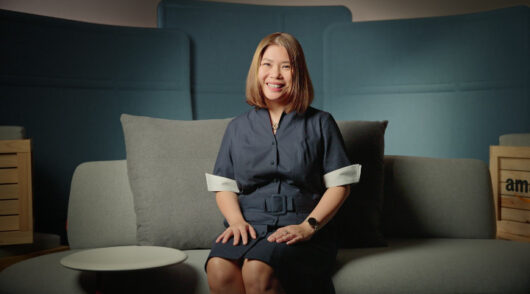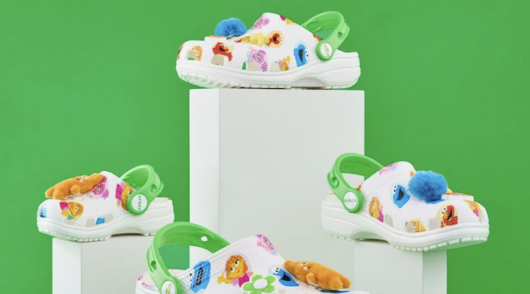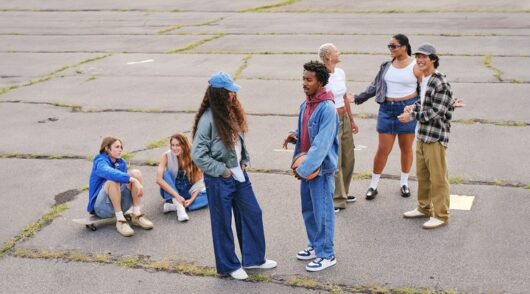Ellie Degraeve is the founder of sustainable lifestyle e-commerce site Go For Zero. An online store that has built a loyal community of consumers looking for low-waste and toxin-free products.
It is through Degraeve’s leadership that Go For Zero’s mission to stock products that are ‘good for you and the planet’ extends beyond just sustainability.
Here, we speak with Degraeve about how retail can be a tool to help level the gender gap and elevate female businesses.
Inside Retail: Tell me a little bit about your business and your journey to founding Go For Zero?
Ellie Degraeve: I grew up in Belgium. I studied psychology and ended up doing an international retail traineeship, and that was my first step into retail. I started [with] six months [of] stocking shelves to really understand the culture on the floor, which was incredibly important.
That’s where it all started, but for me, Go For Zero started when I became a mum. My daughter reacted really badly to mainstream products from the supermarkets. So when I started to look into ingredients, I was just really shocked at what I found, and the ingredients that are allowed in our products. I started to make my own products, which I was horrible at, but I really found my passion in researching products.
I moved to Australia about eight years ago, and I wanted to find a company that has products that are natural and good for the environment and safe for us and gives back to the community and educates customers so they really know what they’re buying, and that’s how I started Go For Zero. We turned five last November, and even now, we’re growing really well.
IR: In addition to stocking sustainable products, you place a large emphasis on stocking products and brands created by women. Why is this a priority for you?
ED: We were talking about that [recently], because I had someone with a disability reach out, a lady on the Sunshine Coast. And I said, ‘How amazing would it be [if] we could support a female that can’t find work, and we can really make a huge impact in her life?’
First of all, I think a lot of natural and sustainable products are founded by females, but I think I often look for them, because I had someone that really believed in me when I had my corporate career, and I thought it was so important. I find also, with the team that I have, it’s a cool female team that works incredibly well together, and I just feel being able to give these females their own independence… Hopefully, they can buy their first house, and [get] a loan, that is based on Go For Zero. It’s just this community that I think is really important.
I got that [support], and it completely changed my life, and I think it’s my responsibility to do the same, a bit of a ‘pay it forward’ mentality.
IR: What do you think the flow-on effects of this decision are for the retail industry?
ED: There’s a gender gap here. I think there are so many [areas of retail] that [the gender gap is] still not closed, and I think we’re all very aware of it now too. If I look at my team, they’re so versatile. My husband always says to me, ‘Women should rule the world.’ It’s not that I think we’re better at multitasking, but I do feel we can handle a lot of different things, and we’re very in tune maybe with other people’s emotions. Obviously, [we all] have different personalities, but if you can get the right personalities together, I think there’s a very collaborative spirit in women. It’s about encouraging different opinions, but being kind and doing it in a nice way. We’re all very respectful to each other and still don’t always have the same opinions.
IR: In your experience, how does your method of deciding who to stock on Go For Zero’s contrast to other major retailers?
ED: We are so incredibly strict. Often when suppliers reach out to us, I think, ‘They’ve got no idea the questions that are coming at them.’ They get a huge Excel [spreadsheet] with about 100 questions about their products to make sure that it is the right fit. We add in the packaging too and make sure they’re giving back.
The real value [of Go For Zero] is that there’s no greenwashing, so the research that we do before we take a product on is huge. We also test them before we take them on. That’s why we don’t have 10,000 products because it’s also incredibly confusing to have so many options. But I can stand behind every single product that we have because I’ve tested it, I’ve researched it, and I know it’s 100 per cent safe for customers and also for the planet.
It’s a lot of work. It would be so much easier sometimes to just take a product on because we know it’s popular, but [if] they all come in plastic, it’s my role to say, ‘That’s the reason why we don’t take it on.’
I think often we go against what everyone wants, and that is not easy, but that’s where the educational part comes in, and where we say, ‘That’s the reason why we do not stock recycled plastic lunch boxes.’ Everyone loves it for the planet, but it’s horrible for our health. It’s just about educating and explaining, and that’s how we get customers behind us.
IR: What do you think the business case is for retailers to stock women-owned brands?
ED: I would probably say there’s a lot of heart behind every female founder that I’ve met. They have the most amazing stories, the most amazing passion, and I think you get the absolute best product because there’s often a real drive and passion behind it.
It also just supports women. All-female-founded businesses get just 4 per cent of [startup] funding [in Australia]. That’s insane. To change these numbers, it’s up to us to really. And I would say also, it’s up to women to keep supporting women.
I upskilled myself so much [when I first started working in retail]. I did roles that I had no idea how to do. I’m a psychologist, but I just worked really hard and fought for my role, and someone gave me that chance. If we want to change the world and want to do better, we just have to give it a go.
IR: Do you have any advice for female founders who are trying to get their products stocked by both independent and big retailers?
ED: Don’t stop. I get so many emails from new brands and in all honesty, sometimes I just have no time to research them, and I forget about them. It’s only the brands that keep coming back [that stand out]. Don’t take no for an answer. Dare to put yourself out there and again and again. No is just a starting point. You need eight ‘nos’ before you should stop.
Send products out. When I receive a product, and I can see it, I can feel it, and I know it meets my values, it’s very different than just seeing a brochure on the website. So try to find different ways to not just send an email. Give them a phone call and follow up.
Everything, in the end, is a learning experience. I lost a huge contract. We were in the last phase as a small company versus a company that had 200 employees, and we were the last two. And in the end, we lost it because they were worried that we were too small and couldn’t handle their volume.
I had a big cry because [I got the call] at the airport, I was by myself, and I was like, ‘We fought so incredibly hard for it, put so much time into it.’ But you just have to go as hard as you can and have no regrets. If it’s a no, well, then it’s a no, and it happened. Some things you can’t impact, but you should try to impact as much as you can.This article is part of Inside Retail’s #IRWD365 campaign to shine a spotlight on inspiring women in Australia’s retail industry and drive tangible change towards gender equality.






